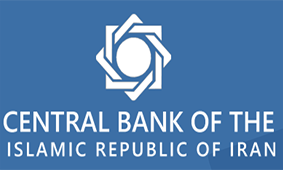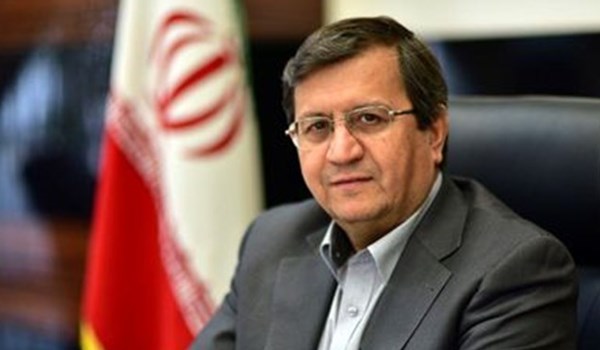
Iran Says Oil Exports Rising Despite Sanctions

“I said it before and I’ll say it again, they [US] have done all they could [against Iran]. We have climbed past the peak of sanctions. Our oil exports are on the rise,” Hemmati told reporters on the sidelines of a cabinet meeting today.
His remarks came after the US announced on Monday a series of strange kind of sanctions, targeting the Iran’s topmost authorities, including the office of Leader of the Islamic Revolution Ayatollah Seyed Ali Khamenei, Iran's Foreign Minister Mohammad Javad Zarif, and senior commanders of the Islamic Revolution Guards Corps (IRGC).
“A lack of fluctuations in the foreign currencies exchange market showed that the new sanctions had no effect,” he added.
He then touched upon the EU’s trade mechanism for Iran, saying “it’s been a while since EU claimed it is on the brink of making INSTEX operational. We haven’t seen anything in practice, though. They have held meetings with us and some documents have been exchanged, but as long as no resources are transferred via INSTEX, the mechanism is of no use to us.”
On Tuesday, EU’s foreign policy chief Federica Mogherini said that the trade mechanism called the Instrument in Support of Trade Exchanges (INSTEX), aimed at facilitating trade with Iran in the face of US sanctions, is “now ready to be operational.”
“I believe that this [INSTEX] is now ready to be operational and I hope that this is something that can help to keep Iran compliant with the agreement, as it has been so far and as we all want to see this continue to be the case,” she stressed.
Hemmati, meanwhile, went on to add, “Without any exports to Europe, we cannot have any imports either. They won’t allow us to export to Europe right now. There needs to be a line of credit for Iran; this way, it will take less than a week for the INSTEX to become operational.”
Iran’s allies and neighbors, and Tehran’s strategic partnership with anti-Washington countries, play an important role in the country’s plans to offset US sanctions.
On Friday, Russia signaled its willingness to secure Iran's interests in the oil and banking sectors if Europe's non-dollar mechanism aimed at facilitating trade with the Islamic Republic is not launched.
Russian Deputy Foreign Minister Sergei Ryabkov said on Friday that Moscow is ready to help Iran export its crude and ease restrictions on its banking system if Europe fails to launch the INSTEX with Tehran.
Early in this month, Iran’s Ambassador to Turkey Mohammad Farazmand announced that Tehran and Ankara are working on a financial mechanism channel to bypass the US unilateral sanctions in a bid to prevent bilateral trade from falling victim to trans-regional players.
Late in May, China, the top buyer of Iranian oil, dismissed Washington’s warning to Hong Kong that it could face penalties if it provides services to a vessel carrying Iranian oil headed for the autonomous territory, saying “normal energy dealings” with Tehran are in accordance with law and should be respected.
In mid-April, the White House has announced that it will not renew exemptions granted last year to buyers of Iranian oil in an attempt to bring Iran’s oil exports to “zero”, around a year after it abandoned a 2015 multinational nuclear deal with Iran and reinstated its sanctions against the Islamic Republic in a much-criticized move.
The move sent oil prices soaring to an unprecedented level since November 2018 and drew harsh criticisms from the main customers of Iranian crude, especially China and Turkey.



Trump weighs using $2 billion in CHIPS Act funding for critical minerals

Codelco cuts 2025 copper forecast after El Teniente mine collapse

Electra converts debt, launches $30M raise to jumpstart stalled cobalt refinery

Barrick’s Reko Diq in line for $410M ADB backing

Abcourt readies Sleeping Giant mill to pour first gold since 2014

Nevada army depot to serve as base for first US strategic minerals stockpile

SQM boosts lithium supply plans as prices flick higher

Viridis unveils 200Mt initial reserve for Brazil rare earth project

Tailings could meet much of US critical mineral demand – study

Kyrgyzstan kicks off underground gold mining at Kumtor

Kyrgyzstan kicks off underground gold mining at Kumtor

KoBold Metals granted lithium exploration rights in Congo

Freeport Indonesia to wrap up Gresik plant repairs by early September

Energy Fuels soars on Vulcan Elements partnership

Northern Dynasty sticks to proposal in battle to lift Pebble mine veto

Giustra-backed mining firm teams up with informal miners in Colombia

Critical Metals signs agreement to supply rare earth to US government-funded facility

China extends rare earth controls to imported material

Galan Lithium proceeds with $13M financing for Argentina project

Kyrgyzstan kicks off underground gold mining at Kumtor

Freeport Indonesia to wrap up Gresik plant repairs by early September

Energy Fuels soars on Vulcan Elements partnership

Northern Dynasty sticks to proposal in battle to lift Pebble mine veto

Giustra-backed mining firm teams up with informal miners in Colombia

Critical Metals signs agreement to supply rare earth to US government-funded facility

China extends rare earth controls to imported material

Galan Lithium proceeds with $13M financing for Argentina project

Silver price touches $39 as market weighs rate cut outlook

















